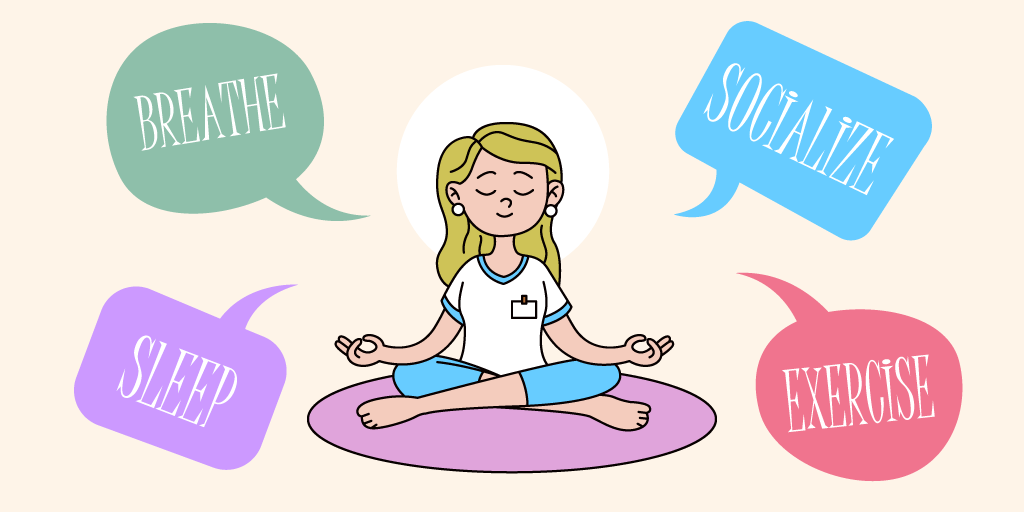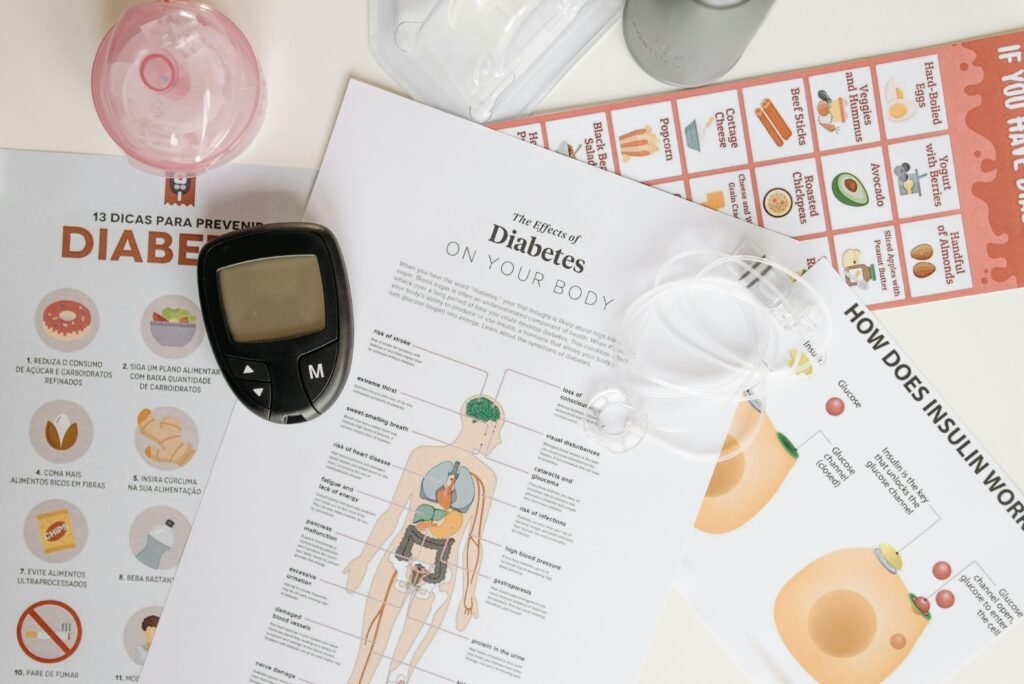Life is beginning to move at an incredibly fast pace, experiencing chronic stress is not so rare in the present age. It can be a problem with our body’s basic functions or how we are thinking and feeling. Chronic stress and its impact on your body are important things to learn about as well as strategies to manage it in order to live a good heathy life.
What is Chronic Stress?
Chronic stress is a long-lasting, unrelenting form of stress which tends to be caused by, but not limited to work stress, fiscal issues, marital conflict, or continual life change. Intense stress occurs briefly and seldom lasts for many hours and therefore has a healing effect, on the other hand, chronic stress persists for weeks, months or years and its impacts are destructive.

The Physiology of Stress
Stress usually triggers your body’s “fight or flight” response and hormones like cortisol and adrenaline can be liberated. This response readies your body to meet threats in your environment, but can be very unhealthy if done frequently. Chronic stress is known to elevate the levels of these hormones in your body and too much of these hormones is not good for your body or mind.
How Chronic Stress Affects Your Body
It is highly possible to develop different health complications in case one has chronic stress. Here’s a closer look at some of the ways it impacts various systems in your body:
1. Cardiovascular System
Stress is a notorious condition that if prolonged over time can have severe effects on the heart. While under stress for a prolonged period, their heart rates and blood pressure also rise and tend to hold high blood pressure. Chronic stress is seen to increase the risk of heart disease and stroke according to the American Heart Association.
2. Endocrine System
Hormones basing the endocrine system are greatly affected by chronic stress. A continuous high level of cortisol is capable of throwing off other hormones within the body and lead to obesity, diabetes and even thyroid problems.
3. Digestive System
Hormones that are released due to stress may affect a person’s bowel movements hence causing stomach aches, indigestion and IBS. The American Psychological Association also records that stress can also impact the eating habits by leading to overeating among others or complete loss of appetite.
4. Immune System
Stress cripples the human immune system thus increasing the rate of infections and sick incidences. Overall, a study done in the journal Psychosomatic Medicine showed that people with high stress have a greater susceptibility to chronic diseases and autoimmune diseases.
How To Naturally Boost Your Immune System
5. Nervous System
Stress impacts the nervous system causing anxiety, depression and all other mood changing implications. Long-term stress may affect the brain damaging neurons responsible for memory as well as the synaptic plasticity.
6. Musculoskeletal System
Stress is a cause of many health problems and one of the more obvious symptoms is muscle tension. It is over time that you are bound to experience sever neck, shoulder and back aches due to this conflict. Moreover, lifestyle bad habits that are caused by stress such as teeth clenching leads to oral issues and jaw pain.
7. Reproductive System
Hormonal imbalances are the effects of chronic stress on reproductive health. In women it causes changes such as irregular menstrual cycles while in men it causes erectile dysfunction and low sexual desire.
Signs and Symptoms of Chronic Stress
Physical symptoms of Chronic stress including head – ache, nervousness, fatigue migraine, ulcers aching joints and chest pains. One should be able to identify the symptoms of the chronic stress because early check point is important.
Common symptoms include:
- Physical Symptoms: It is attributed to fatigue, headaches, muscle tension and digestive problems.
- Emotional Symptoms: Anxiety, irritability, depression and more mood swings.
- Behavioral Symptoms: Altered eating patterns, sleep pattern fluctuations and social isolation.
If you find these signs in yourself, you should not hesitate and start to work on your stress management.
Fast and Effective Relief for Headache Pain
Practical Approaches to Long Term Stress Handling
Despite what chronic stress does to the body and mind, there are quite effective ways of handling it. Here are some proven methods:

1. Practice Mindfulness and Meditation
Meditation is defined as the act of paying attention to something which is taking place in the present with the intention of being fully conscious about the place occupied by something at a particular time. Stress can be easily managed by practicing mindfulness and meditating. These make you focus on the present moment hence helping you avoid thoughts that are making you too aware of your heart beating. In peer reviewed Journal of Clinical Psychology, it was documented that Mindfulness meditation leads to lower levels of stress and anxiety.
2. Exercise Regularly
Sport is a very good stress buster. Exercise helps in the production of endorphins, the body natural happy element reducing stress. Make an effort to have 150 minutes or more of any moderate intensity aerobic exercises which include walking briskly, cycling, or swimming.
3. Establish Healthy Boundaries
Setting limits and that means being able to say no at appropriate times is a good way towards lessening stress. You always have to look out for yourself and not overburden yourself with work.
4. Seek Social Support
This may make it easy to find relief by talking to friends, family or, even a counselor. Read your mind or write on what is in your heart so as to have a different angle and feel less alone.
5. Practice Relaxation Skill
Make use of relaxation in your activities. Some of the widely recommended stress-busting techniques include; deep inhaling and exhaling, muscle relaxation methods, and yoga.
6. Maintain a Healthy Diet
To follow a healthy diet you should consume foods containing vitamins, minerals, fiber and proteins from fruits, vegetables, whole grain products and lean meat. Minimize on foods that contain caffeine and sugar since they cause stress in anyone.
7. Get Adequate Sleep
Stress control requires sleep as it is a very central part of human daily life. Adults should try to get between 7-9 hours of good sleep every night. It was also found that getting into a good sleep schedule can help with carrying out bedtime activities effectively. Learn more about the importance of sleep: National Sleep Foundation
8. Limit Screen Time and News Consumption
Stress comes with the persistent use of screens and having access to negative news feeds. Limit the time you spend online on devices and stay away from social networks and news for some time.
When to Seek help
Sometimes stress can become a chronic issue which may take a toll, and it becomes difficult to cope with, and one needs to look for an expert. This can be a mental health professionalism who can listen to you, guide you and give you strategies on how to handle each situation.

Conclusion
Stress which is long-term stress is a major social determinant that can lead to adverse effect on your health. You can understand how it works to influence your body and also learn how to incorporate ways on how to deal with it to enhance a better living standard. This way, if you are a stressed person, you will reduce the impact of chronic stress and maintain good health and needed mental health support.
How does chronic stress affect the body?
Chronic stress can affect various systems in the body, including the cardiovascular, immune, digestive, endocrine, and nervous systems. Over time, it can lead to serious health issues such as heart disease, weakened immunity, digestive problems, hormonal imbalances, and mood disorders.
What are common symptoms of chronic stress?
Symptoms of chronic stress include headaches, fatigue, digestive issues, muscle tension, mood swings, anxiety, depression, sleep disturbances, and changes in appetite. Recognizing these symptoms early can help prevent further health complications.
How can I manage chronic stress effectively?
Effective management strategies include practicing mindfulness and meditation, exercising regularly, maintaining a healthy diet, establishing boundaries, and seeking social support. Developing a consistent self-care routine and considering professional help if needed can also be beneficial.
Can chronic stress cause long-term health problems?
Yes, chronic stress can lead to long-term health problems. It has been linked to heart disease, high blood pressure, obesity, diabetes, and mental health conditions such as anxiety and depression. Addressing chronic stress early on can help prevent these complications.
Does exercise really help reduce chronic stress?
Yes, regular physical activity is known to reduce stress by releasing endorphins, which improve mood and promote relaxation. Even moderate exercises, like walking or cycling, can make a big difference in stress management.
When should I seek professional help for chronic stress?
If chronic stress interferes with your daily life, affects your relationships, or leads to severe anxiety or depression, it’s best to seek professional help. A mental health professional can provide personalized coping strategies and therapeutic support.
What lifestyle changes can help prevent chronic stress?
Making lifestyle changes such as improving sleep quality, limiting screen time, setting personal boundaries, and engaging in hobbies or relaxation techniques can be effective in preventing and managing chronic stress.
Can diet impact chronic stress levels?
Yes, a healthy diet can help regulate stress by providing essential nutrients that support mental and physical health. Avoiding excess caffeine, sugar, and processed foods while eating a balanced diet rich in fruits, vegetables, whole grains, and lean proteins can improve stress resilience.




Pingback: Comprehensive Guide To Sleep Disorders: Symptoms, Causes, And Treatment - Health Wander
Pingback: Recognizing The Symptoms Of Heart Disease - Health Wander